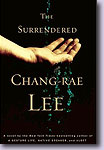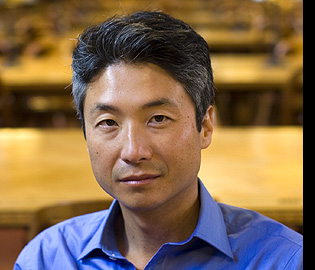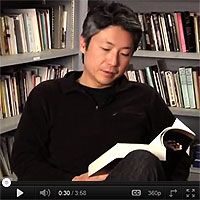

The Surrendered
This novel is a close look, a personal examination of people torn and
formed by the violence of the Korean War. Chang-rae Lee does not
blink as he demonstrates - in harrowing scenes - the violence that
swings through the lives of the displaced, particularly one missionary
family in Korea and the people closest to them. This is a book of
moments ďż˝ many times bloody moments ďż˝ through decades, and the drama
is vivid and uncomfortable and compelling.
After the chaotic pitch of
the first half of the book involving the history of the Korean
orphanage, the Tanners and Benjamin Li and Hector and June, the story
returns to the United States and then goes off again following June�s
search for her estranged son. This is a big novel which steadily
transcends any thematic constraints and steps into real art as the
dimensions of the book insist on a gritty and complex understanding of
our best impulses in the worst of times. All the while, page by page,
the prose in the novel has a forceful elegance.
From page 209, a brutal interrogation of Benjamin who works at
the orphanage; he�s being beaten by Japanese soldiers. He is Chinese.
�And yet Francis could not quite move. He couldn�t aim or
even raise his arm. When he finally held out the pistol for the
officer to take back from him, Jane whispered, �Oh my love.� Her eyes
were shimmering. Sylvie was crying as well, suddenly remembering now
what her mother always told her, that mercy was the only true
deliverance. There was nothing more exaltedly human, more beautiful
to behold. And a great searing rush of love seemed at once to cleave
her and bind her back up, a love for her father and her mother and
then, too, for Benjamin Li, despite what had happened, whom she could
see only as her father just did, as the one wanted mercy most of all��
In this novel, thoughts like these, gracious and magnanimous, are
constantly ďż˝ as in life ďż˝ challenged and battered by the real forces
of men at war and people divided in their own hearts.
ďż˝ Ron Carlson, 2011 finalist judge
University of California, Irvine.
|
|
 |

2011 Fiction Winner

 
(Click photo to see acceptance speech at awards dinner.)
Chang-rae Lee
The Surrendered
Chang-rae Lee is the author of The Surrendered, Native Speaker (winner of the Hemingway Foundation/PEN
Award for First Fiction), A Gesture Life, and Aloft. He is also the recipient of an Anisfield-Wolf
Book Award, a Gustavus Myers Outstanding Book Award, a NAIBA Book Award for Fiction, an Asian American Literary
Award, an American Book Award from the Before Columbus Foundation, the Oregon Book Sward, a Barnes & Noble
Discover Great New Writers Award, and QPB�s New Voices Award.
Selected by The New Yorker as one of the twenty best writers under forty, Chang-rae Lee teaches in the Creative
Writing Program at Princeton University. The Surrendered was included in the �100 Notable Books of 2010� list
by the New York Times Book Review, voted one of the �Top 10 Best Books of 2010� by Publishers Weekly,
named one of the �Top 25 Books of 2010� by Kirkus, and was one of the �Editor�s picks for the Year� by
Barnes&Noble.com.
* * *
�History shows that all nations eventually decline, governments shall fall, great structures will crumble to dust; yet literature endures. Why? Because in order to thrive we need our own voices to tilt against intolerance, ignorance, callousness; to make ourselves vulnerable to the difficult and beautiful truths of our humanity; to remind us we are one. This is what the Dayton Literary Peace Prize Foundation so rightly supports and celebrates; that my work has been thusly recognized is a deeply humbling -- and inspiring -- honor.�
ďż˝ Chang-rae Lee
* * *
Video of author Chang-rae Lee, director of the Program in Creative Writing
at Princeton University, reading from "The Surrendered" and discussing the
creative writing process.

|
|